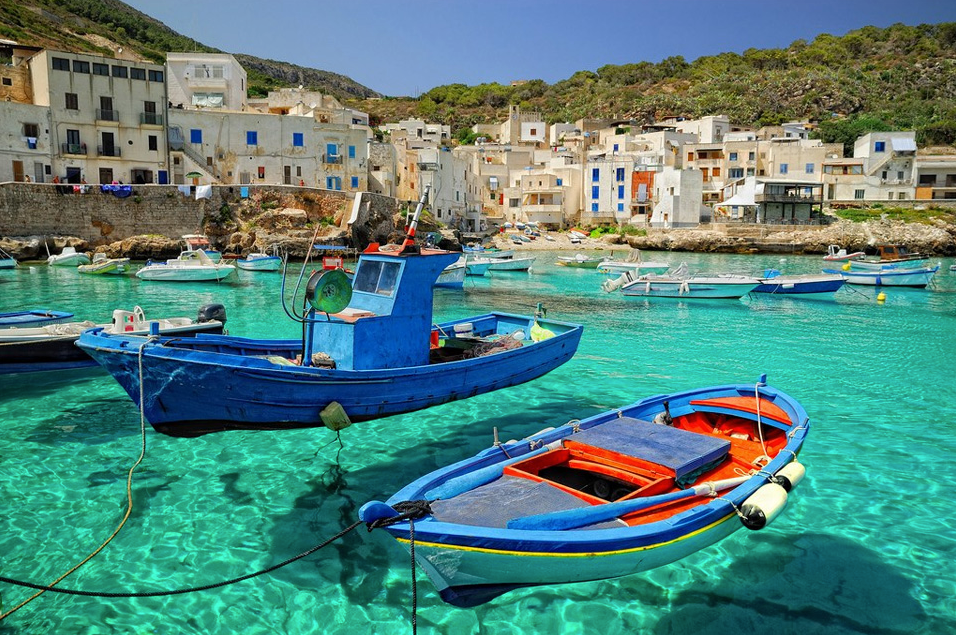 26 Lug 2014
26 Lug 2014Articoli / Spunti
Pubblicato sul VOL II N°1 (2014) del Mediterranean Journal of Clinical Psychology ( MJCP )
ISSN: 2282-1619
Doi: 10.6092/2282-1619/2014.2.982
Mediterraneo. Levanzo. Esperienze per esserci. Ed. Magenes, Milano 2014
Author: Girolamo Lo Verso
The life “into” the life
When Girolamo Lo Verso writes of the sea, immediately brings us the customs of life, at the border in which he, inviting the reader to do the same, gives free access to his humanity.
In this book, his being man before him. Before a story, first of theories and psychological reflections, there is the man, fragile. How do the poets, he leaves pierce the fear of the end, and for the first time, he gives comforting gestures, as if asking for understanding and sharing of the reader. The reader, his heart becomes soft, wet as the sea, cannot help but keep company with its solitary thoughts. In the time of the first pages, in which the expectation of a biopsy, takes your breath away with superstitious irony, the author provides a dignified farewell that moved with pain and beauty when it melts into the sea as in his path of life.
It is a transfiguration iconography of death that looks like a hymn to life. Close the existence with the desire to penetrate with his passions for eternity, translates to “confess to having experienced” Neruda wanted on his tombstone. This becomes a trademark of the totality of life in the place of his own end. With the modesty of one who is going to indulge in something unmentionable, Lo Verso apologize to the reader for all the emotional space that occupies his existential event, in the first part of the book.
Those who know the author, is used to being excited by his narratives, but here, especially in the initial phase, the thrill of passion and beauty as told by a smug frequenter of life, gives way to a singer who moved writes of the beauty of live with nostalgia.
How to epistemology and psychotherapy have taught us, there are many ways to experience the same things. Each access to a whole new dimension of life, brings with it the melancholy at the prospect lost. This is one of the many deaths that cross over into our lives. I think and live these steps is easy at this time, being “full” of life (pregnancy) but also nostalgic for what will definitely change when this new creature comes into the world.
From a reader, I was overwhelmed, almost drunk by this “human, all too human” by participating in the emotional waltz proposed by the author. As you read this book you cannot help but abandon humanity that Lo Verso asks you, you cannot help but “get in touch”.
So, I too, following the advice of the author, to match the reading on the soundtrack of the Mediterranean film, I framed my tummy, with two large headphones in an effort to share what will be my daughter, this bundle of emotions. The life “in” the life.
The intense atmosphere of the book, favors moments of intimacy with the author and the “many within us” (ancestors, parents, grandparents, children, etc..). One of the first considerations was that this is a therapeutic book, because it allows the freedom to be touched, to feel fear and to share it with the author.
It is a therapeutic possibility to live the fullness of life even in the face of the most painful and paralyzing experiences, such as illness and death.
It is therapeutic to express their opinions freely, as does the author bother with that (in some cases scorn) describes the Italian political scene, holding the objective on Sicily, in contradiction with one of the most enchanting places on earth.
The Sicilia “lived”, not geographical, that of Lo Verso, stretching from the Egadi in Reggio Calabria and is the protagonist of the narratives. Here are the radical contradictions of the Mediterranean, land of the value of diversity, of eros and death, heroes are able to enjoy the pleasure of living and poor men, who are terrified of life and living a fake power.
When he escaped the danger is (values are the norm), time, first suspended, returns to flow, as it unfolds, the narrative becomes less emotionally agitated, more relaxed, in a climate of apparent frivolity, as the flavors of Mediterranean cuisine.
Stories and anecdotes, plans and dreams, begin to populate the pages. Remains constant, the question of what could be the most cruel face of death. Does the fact of having lived fully, we can leave this earth without regret or whether, on the contrary, experienced this pleasure, makes it more painful to have to close a life.
Wanting to interpret the whole book as an answer to this question, it seems that Lo Verso longer believe in the second hypothesis.
Each page tells of being “inside” the life as a supreme experience, all that surprising beauty owns this “inside”:
the house of Levanzo “inside” the sea, islands embedded “inside” the sea, diving “into” the sea, psychotherapy “in themselves and in each other”… but who knows, this hypothesis is primarily concerned with myself and my being in a relationship with life “inside”. Anyway I thank the author for having opened this experience “inside” me.
Emanuela Coppola
FULL PDF: http://cab.unime.it/journals/index.php/MJCP/issue/view/80/showToc (Mediterranean Journal of Clinical Psychology)

